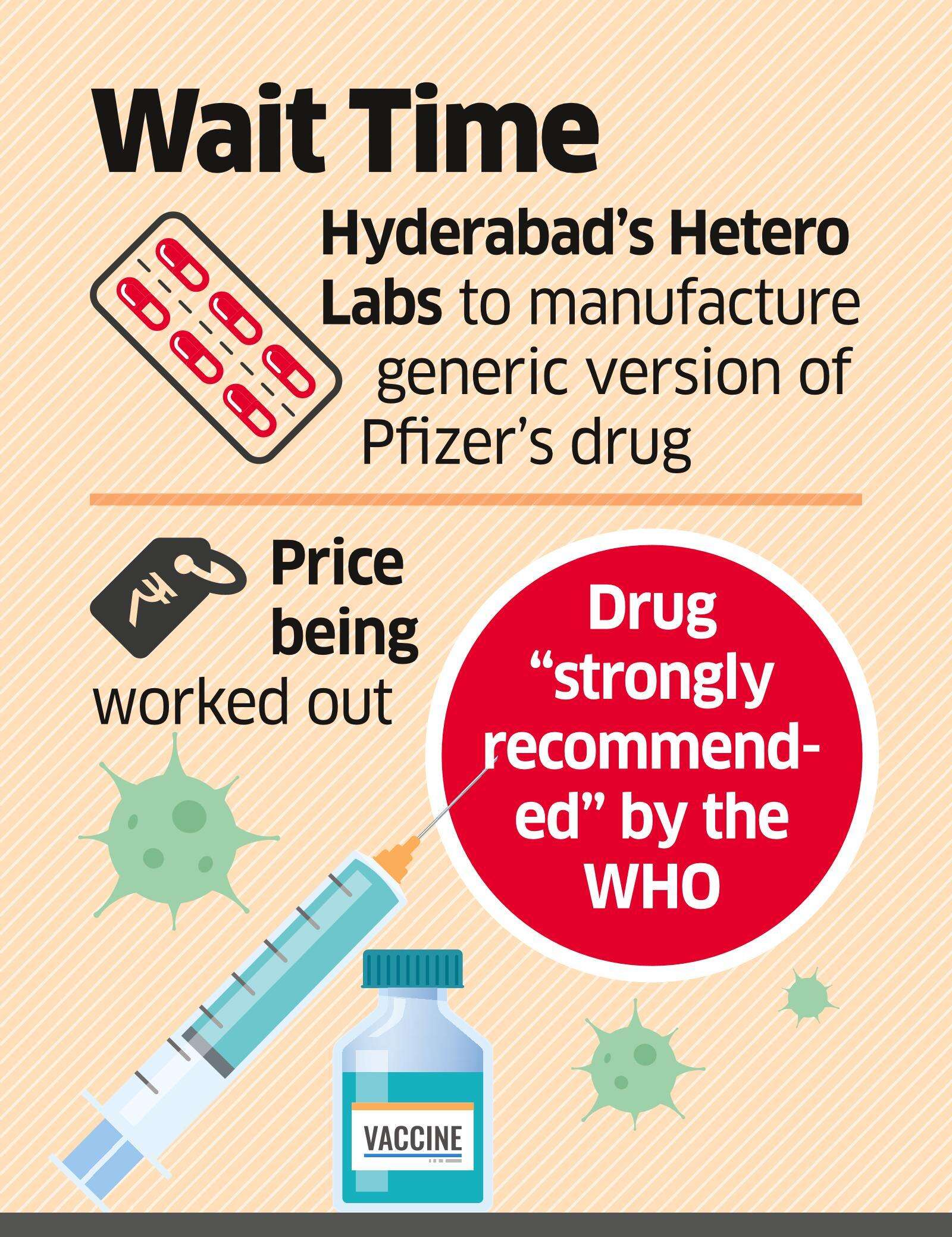Experts from the Indian Council of Medical Research (ICMR) have not found a compelling reason to include Pfizer’s antiviral drug Paxlovid in the national treatment guidelines for Covid-19.
Samiran Panda, head of epidemiology and infectious diseases at ICMR, told ET that members of ICMR’s National Task Force on Covid-19 had met last week to discuss the matter but did not find merit in the drug’s inclusion in the national treatment guidelines for Covid-19. “The current evidence did not merit inclusion of Paxlovid in the treatment guidelines and the existing guidelines stand valid,” he said, adding that the experts are awaiting data from ongoing trials and will review it further as data comes.
“As of now the current evidence doesn’t support its inclusion. But there are trials which are undergoing and we are waiting for more data and will review it again,” Panda said.

Last month, amid rising Covid-19 infections in the country, the drug regulator had approved Paxlovid for restricted emergency use against Covid-19.
Hyderabad-based Hetero Labs has the licence to manufacture the generic version of Pfizer’s drug, touted as a game changer in the fight against the disease. The generic version is likely to be launched soon as Hetero Labs is working on the price of the pill, people in the know had told ET earlier.
The drug has been “strongly recommended” by the World Health Organization (WHO) in patients with mild and moderate forms of coronavirus disease (Covid-19) at the highest risk of hospitalisation. The recommendation is based on data from two randomised controlled trials showing that the risk of hospital admission is reduced by 85% following the administration of the drug in a high-risk group.
The UN agency has, however, recommended against its use in Covid patients at lower risk of hospitalisation, stating the benefits were found to be negligible.






